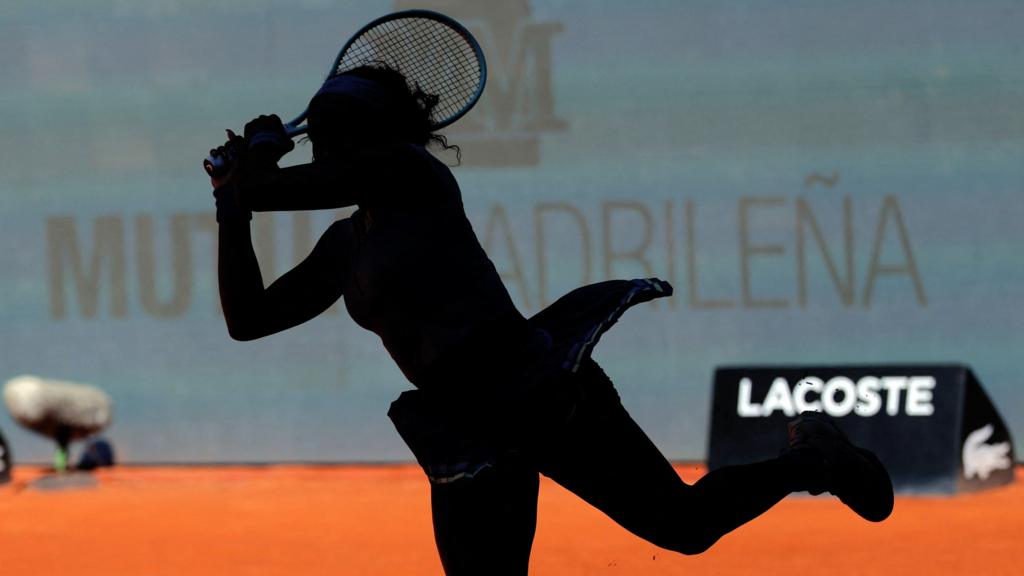Coco Gauff had only just secured her win against Belinda Bencic when a major power outage struck the Madrid Open.
Mirra Andreeva had just approached the baseline to serve for a berth in the quarter-finals when the lights went out.
A widespread blackout disrupted electricity for millions across Spain, Portugal, and parts of France, triggering turmoil in numerous regions.
In Madrid, the tennis tournament faced significant challenges: the automated line-calling system failed, leaving players and the chair umpire to make calls manually, while the scoreboards ceased to operate.
On centre court, Britain’s Jacob Fearnley, preparing to serve to stay in contention against Bulgaria’s Grigor Dimitrov, was interrupted as the ‘spider cam’ stalled midair, obstructing play and bringing proceedings to a halt.
Despite the challenges, Russia’s Mirra Andreeva managed to serve out her victory but later described the tension: “It was 15-40 on my serve and I just thought, Oh, Mirra, please, do everything you can to take this game and close out the match.”
In the wider city, traffic signals failed and train services were suspended. Brazilian doubles player Fernando Romboli shared on Instagram that he was trapped in a tournament lift, external for 30 minutes due to the outage.
The match between Fearnley and Dimitrov was suspended at 6-4 5-4 in Dimitrov’s favour, while Andreeva, Coco Gauff, and Italy’s Matteo Arnaldi were able to complete their matches.
“The hardest part so far is not being able to shower after my match,” admitted American Gauff on Monday.
“With no running water, I had to clean up with baby wipes, spray some perfume and accept that’s all I could do.”
“It’s astonishing to realise how dependent we are on electricity. It’s really incredible.”
Third seed Taylor Fritz had a creative suggestion for restoring the power.
Images circulated on social media depicted the players’ lounge illuminated by candlelight, with several athletes attempting to use practice courts until the diminishing daylight proved insufficient.
“Everyone is getting by with phone flashlights,” said Andreeva, “but in a way, it’s nice that everyone is socialising more than usual.”
“The mood is notably more congenial.”
Gauff echoed this sentiment: “Usually we’re focused on our matches and preparations, but this situation has everyone interacting.”
“I was able to talk with Frances [Tiafoe], Mirra too, and also with Diana [Shnaider] and Maddy [Keys].”
“In moments like these, no one knows exactly what’s happening or when play will resume, so it feels light-hearted.”
Allow Instagram content?
This article features content provided by Instagram. Before accessing, we request your permission as Instagram may use cookies and similar technologies. For more details, please review Meta’s Instagram cookie policy, external and privacy policy, external. To continue, please select ‘accept and continue’.
Competition was eventually suspended midway through Monday afternoon, and some players faced uncertainty regarding travel arrangements home.
Andreeva light-heartedly remarked that she hoped not to spend the night in the gym, while Gauff posted on Instagram about heavy traffic, noting she “eventually left the car after nearly two hours of slow movement and simply walked to the hotel.”
Australia’s Daria Saville, competing in the WTA 125 event in Lleida, Catalonia, returned to her accommodation where she found no electricity, lighting, or hot water.
“The worst part is my best friend is travelling from Madrid to play here, which is about an hour from Barcelona, in a place called Vic,” Saville shared on TikTok.
“She’s now been stuck on a train for 11 hours and, from what I know, there’s nothing to eat or drink. I truly feel for her.”
By Tuesday morning, electrical service had been restored to nearly all affected regions.
Mobile flashlights proved indispensable during the prolonged outage.
Power was fully reinstated at the Madrid Open on Tuesday morning.
‘Everything went off’: Tracing the timeline of Spain and Portugal’s significant power failure

